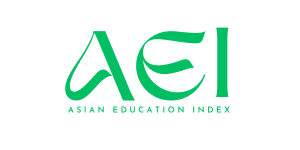Principles Of Fair Work With Children With Disabilities
Keywords:
Inclusive education, school organization, teacher trainingAbstract
This study examines the critical issues involved in organizing inclusive education in schools. It outlines the challenges related to teacher training, curriculum adaptation, and resource allocation that hinder the effective integration of students with diverse needs. By analyzing current theoretical frameworks and reviewing key literature, the research identifies the importance of collaborative stakeholder engagement and the integration of modern technological tools in fostering an inclusive educational environment. The paper also discusses the necessity of policy reforms and continuous professional development to support educators and administrators. Practical recommendations are provided to address current shortcomings and to guide future strategies for inclusive education. Ultimately, the study emphasizes that a systematic, research-based approach is essential for creating equitable learning opportunities for all students
References
UNESCO. (1994). The Salamanca Statement and Framework for Action on Special Needs Education.
UNESCO.
Ainscow, M. (2005). Developing inclusive education systems: The role of organisational culture.
Routledge.
Slee, R. (2011). The irregular school: Exclusion, schooling and inclusive education. Routledge.
Florian, L. (2007). The SAGE handbook of special education. SAGE Publications.
Friend, M., & Bursuck, W. D. (2018). Including students with special needs: A practical guide for
classroom teachers. Pearson.
Smith, S., & Tyler, N. (2011). Effective inclusive education: Equipping education professionals with
necessary strategies. Oxford University Press.
Downloads
Published
Issue
Section
License

This work is licensed under a Creative Commons Attribution-NonCommercial 4.0 International License.
User Rights
Under the Creative Commons Attribution-NonCommercial 4.0 International (CC-BY-NC), the author (s) and users are free to share (copy, distribute and transmit the contribution).
Rights of Authors
Authors retain the following rights:
1. Copyright and other proprietary rights relating to the article, such as patent rights,
2. the right to use the substance of the article in future works, including lectures and books,
3. the right to reproduce the article for own purposes, provided the copies are not offered for sale,
4. the right to self-archive the article.














